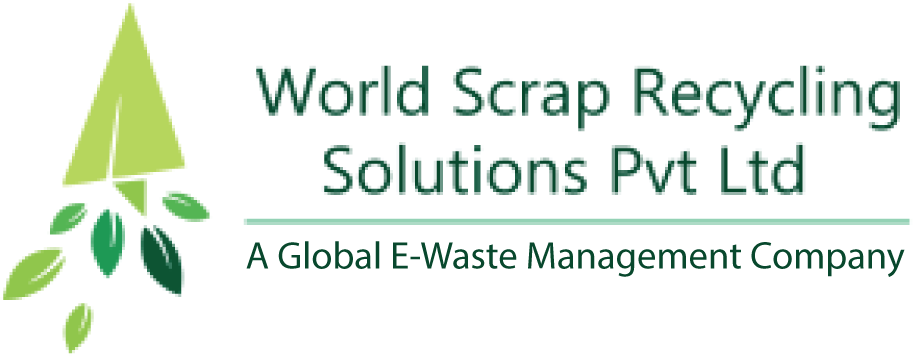

Extended Producer Responsibility (EPR) is the responsibility of every producer and brand owner of electrical and electronic equipment (EEE) for channelization of e-waste to an authorized dismantler/recycler to ensure environmentally sound management of e-waste.
We,World Scrap Recycling Pvt. Ltd. being the Producers Responsibility Organization (PRO) as per E-waste (management) Rules, 2016, are submitting our detailed EPR plan. We consider to prioritizing compliance and follow all regulations amended time to time by government authorities related to e-waste management. We hereby submit our EPR plan having details about the general scheme of collection, channelization plan. RoHS compliance details etc.

1. Producer Responsibility Organization is a professional organization authorized or financed either collectively or individually by Producers, PRO's take the responsibility for collection and channelization of e-waste generated from the ‘end-of-life’ of Producers products to ensure environmentally sound management of such E-waste.
2. A PRO can assist a producer or producers in achieving collection targets, setting up of collection centers/ points/ implementing take back, carrying awareness programmes etc.
3. PRO shall have an agreement with producer(s) outlining the role and responsibility of PRO for managing EPR.
4. Achieving collection targets by Establishment of collection mechanism such as door to door collection.(This may include setting up of collection godowns or operating through warehouses as per the guidelines issued by Central Pollution Control Board) Implementation of buy back/take back
Logistics arrangements Ensuring traceability of the e-waste collected and channelized. Disposal of processed waste & end of life e-waste. Ensuring Environmentally sound dismantling and recycling.
5. Conducting awareness programme among consumer's/ bulk consumers/ producers for collection and channelization of waste.
6. Helping producers in filing of quarterly/annual returns as per the rules.
7. Provide an extended producer's responsibility plan as legally required.
Reverse logistics services are designed to move E-Waste from their point of consumption to an end point to capture value or properly dispose it in a safe and sound manner. This includes managing budgets, organizing schedules & routes. It deals with the collection of E-Waste, transporting them to a central location, and sorting them according to where their final destination will be i.e recycling/dismantling etc..
You can also view our collection points by clicking the button
Always look for information on the catalogue with your product for end-of life equipment handling
Ensure that only Authorized Recyclers handle your electronic products.
Always call our E-Waste Authorized collection centres/points to Dispose products that have reached end-of life
Always drop your used electronic products batteries or any accessories when they reach end of life at your nearest Authorized E-Waste collection centres or points.
Always disconnect the batteries from product and ensure any glass surface is protected against breakage.
Objective of our process is that to serve our client with our recycling expertise and experience p full-fil their EPR targets.
Do not dismantle your electronic Products on your own.
Do not throw electronics in bins having “Do not Dispose” sign.
Do not give E-Waste to informal (Kabadi) and unorganized sectors like Local Scrap Dealer/ Rag Pickers.
Do not dispose your product in garbage bins along with municipal waste that ultimately reaches landfills.
Each and every customer is advice and create awareness about how can we handle the electronic goods and channelize it to approved E-waste recycler/dismantler as per E waste management rules 2016. Lack of awareness among various stakeholders about the ill effects of the end-of-life products (e waste), is the major concern in our country. For reducing the adverse impact on environment and health we need to initiate sustainable mechanism to create awareness among the stake holders.
Rekart Innovation Pvt. Ltd. has run several awareness programme on environmental hazards of electronic waste under EPR plan implementation. We plan to provide financial aid for conducting several awareness programs regularly in places where mass awareness can be achieved like academic institutions, industry associations and professional organizations for organizing workshops/seminars for schools/colleges/resident welfare associations (RWAS)/ bulk consumers/regulatory bodies, media engagement etc. So that they can provide information regarding buy-back programme system.
We also try to provide awareness to all by the means of social media like Facebook, and providing advertisements and posters so that each and every customer would be aware about how to handle the E-waste.